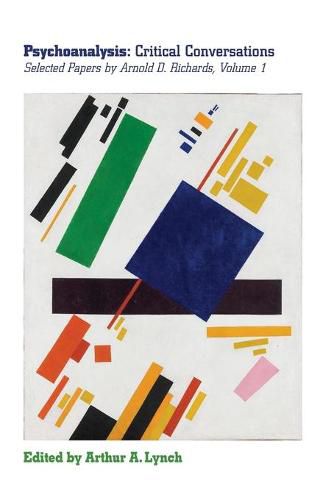Readings Newsletter
Become a Readings Member to make your shopping experience even easier.
Sign in or sign up for free!
You’re not far away from qualifying for FREE standard shipping within Australia
You’ve qualified for FREE standard shipping within Australia
The cart is loading…






Arnold Richards’s psychoanalytic contributions follow the leitmotif of integrative pluralism how to continue the dialogue between the contributors of disparate psychoanalytic schools of thought (i.e., thought collectives) with the larger psychoanalytic knowledge base as it grows and changes with each new contribution. The chapters of the first section of this book show us the evolution of this design.
Although these chapters give us a noticeable trace of this motif, it has taken more then half a century to develop, requiring life experience from the many roles Richards has played and the posts he has held (see Friedman, p.__). He has been editor of The American Psychoanalyst (TAP), Journal of the American Psychoanalytic Association (JAPA), Festschrifts for four prominent psychoanalysts (1986, 1988, 1993, 1994), two additional collections (2001, 2010), and lately International Psychoanalysis.net. He is also the publisher of IPBooks. During this time he has practiced his craft as teacher, supervisor, training analyst, and clinician, along the way contributing over a hundred publications to the psychoanalytic literature. As editor-in-chief of InternationalPsychoanalysis.net, Richards has kept its readers up to date on all things psychoanalytically fit to print., He has also organized a series of annual conferences bringing together dissimilar points of view around (a) common clinical concerns and (b) major educational and training dilemmas. It has been suggested that he be given the title omnicompetent editor (Friedman 2004, p. 13). Throughout these dialogues, as we will see, Richards has attempted to engage those who claim a new orthodoxy and would minimize the overall efforts of psychoanalysis; those who claim new theories, usually untested and unproven, that would replace the old; and those immovably complacent in the status quo.
$9.00 standard shipping within Australia
FREE standard shipping within Australia for orders over $100.00
Express & International shipping calculated at checkout
Arnold Richards’s psychoanalytic contributions follow the leitmotif of integrative pluralism how to continue the dialogue between the contributors of disparate psychoanalytic schools of thought (i.e., thought collectives) with the larger psychoanalytic knowledge base as it grows and changes with each new contribution. The chapters of the first section of this book show us the evolution of this design.
Although these chapters give us a noticeable trace of this motif, it has taken more then half a century to develop, requiring life experience from the many roles Richards has played and the posts he has held (see Friedman, p.__). He has been editor of The American Psychoanalyst (TAP), Journal of the American Psychoanalytic Association (JAPA), Festschrifts for four prominent psychoanalysts (1986, 1988, 1993, 1994), two additional collections (2001, 2010), and lately International Psychoanalysis.net. He is also the publisher of IPBooks. During this time he has practiced his craft as teacher, supervisor, training analyst, and clinician, along the way contributing over a hundred publications to the psychoanalytic literature. As editor-in-chief of InternationalPsychoanalysis.net, Richards has kept its readers up to date on all things psychoanalytically fit to print., He has also organized a series of annual conferences bringing together dissimilar points of view around (a) common clinical concerns and (b) major educational and training dilemmas. It has been suggested that he be given the title omnicompetent editor (Friedman 2004, p. 13). Throughout these dialogues, as we will see, Richards has attempted to engage those who claim a new orthodoxy and would minimize the overall efforts of psychoanalysis; those who claim new theories, usually untested and unproven, that would replace the old; and those immovably complacent in the status quo.